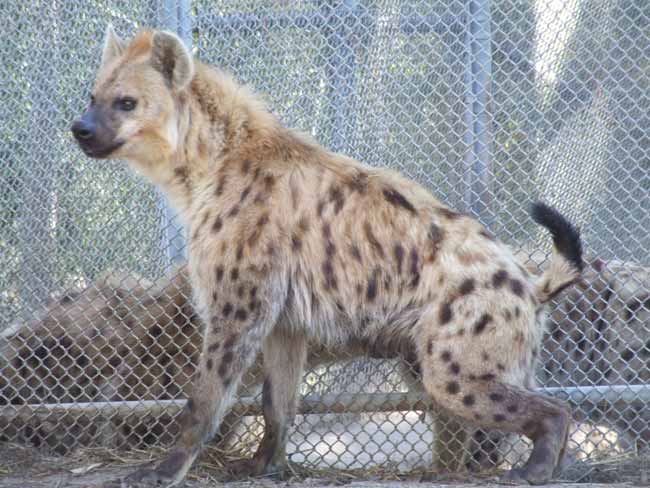Hyena's Laugh Actually Fighting Words

Get the world’s most fascinating discoveries delivered straight to your inbox.
You are now subscribed
Your newsletter sign-up was successful
Want to add more newsletters?

Delivered Daily
Daily Newsletter
Sign up for the latest discoveries, groundbreaking research and fascinating breakthroughs that impact you and the wider world direct to your inbox.

Once a week
Life's Little Mysteries
Feed your curiosity with an exclusive mystery every week, solved with science and delivered direct to your inbox before it's seen anywhere else.

Once a week
How It Works
Sign up to our free science & technology newsletter for your weekly fix of fascinating articles, quick quizzes, amazing images, and more

Delivered daily
Space.com Newsletter
Breaking space news, the latest updates on rocket launches, skywatching events and more!

Once a month
Watch This Space
Sign up to our monthly entertainment newsletter to keep up with all our coverage of the latest sci-fi and space movies, tv shows, games and books.

Once a week
Night Sky This Week
Discover this week's must-see night sky events, moon phases, and stunning astrophotos. Sign up for our skywatching newsletter and explore the universe with us!
Join the club
Get full access to premium articles, exclusive features and a growing list of member rewards.
A Hyena's giggle is not actually laughter, but a sound of frustration. New research found a way to distinguish individual hyenas based on the peculiarities of their, well, let's call them fighting words.
Until now these squeaky cackles have not been well understood by scientists. Researchers recorded the sounds and did the first ever acoustic analysis of them to understand how the calls vary between individuals, and when they are used.
The scientists found that hyenas usually made these noises when they were fighting for food, or in some kind of social conflict.
"When a group of hyenas is feeding upon the prey you hear a lot of these giggles, especially during conflict between two individuals," said biologist Nicolas Mathevon of the Jean Monnet University in France, who is a visiting professor at the University of California, Berkeley.
Mathevon and colleagues monitored 17 captive hyenas at Berkeley, and measured the length, frequency (pitch) and the amplitude (volume) of each of their giggles. They found that the pitch of the sound depended on the hyena's social status: Subordinate individuals made noises that were more varied and higher in pitch.
{{ video="LS_090501_hyena-laugh" title="Hyena Giggles: No Laughing Matter" caption="Though it may sound like a maniacal giggle, the hyena call is actually a sign of frustration, according to research that will be presented May 21, 2009 at an Acoustical Society of America meeting. Credit: LiveScience/Nicolas Mathevon/University of California, Berkeley" }}
Hyena society is very complex, and is matrilineal, meaning females rule the roost. There is intense competition for food, and social status plays a big role in an individual's life.
Get the world’s most fascinating discoveries delivered straight to your inbox.
"The females are dominant, and there's very strong hierarchy, especially when they are feeding," Mathevon told LiveScience. "Apparently the subordinate animals emit more giggles than the dominant ones. That’s why we think it's more a frustration call."
Though the study was conducted in captivity, much of the hyena's social behaviors appear unchanged. The researchers think their results apply to hyenas in the wild, though doing more tests in the field will confirm the findings.
"The hyena society is so complicated that they really need efficient means of communication between individuals," Mathevon said. "I think this call is just part of a very complex communication system which includes a lot of different sounds, as well as chemical systems and visual systems."
The biologists found that they could tell many individuals apart from their giggles alone, which often have peculiarities of pitch and volume related to their age and social standing in the group. A future research goal is to try to determine if hyenas use the calls to identify each other. This study is part of a larger project to study the role of acoustic communication in various animal species.
Mathevon will present the team's findings May 21 at the 157th Acoustical Society of America meeting in Portland, Oregon.
- Video - Hyena Giggles: No Laughing Matter
- The Painful Realities of Hyena Sex
- Vote! World's Ugliest Animals
 Live Science Plus
Live Science Plus











